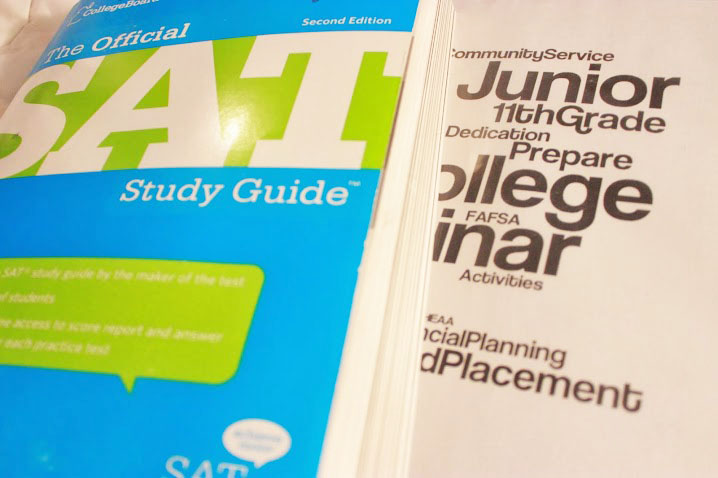Sam Niu ’15, Eunice Ju ’15: Formula scoring, the practice of penalizing students for incorrect answers, used on standardized tests such as the SAT and AP exams, may soon be a thing of the past. Head of School T.J. Locke broke the news to Scholium, saying, “‘Formula Scoring’ is going away in future versions of the SAT. No more penalty for incorrect answers.” This change may neutralize the carefully conceived strategies that so many SAT preparation programs focus on. By penalizing incorrect answers, the SAT has prompted students and tutors to develop methods for maximizing the chance of scoring high on the test.

Photo Courtesy of Brittany Belo ’14
This news has not yet been released by College Board, but was obtained by Locke from an insider and research analyst. Locke believes that “the goal was to make [the test] less about gaming the system and more about what [students] actually know or can do. The idea behind it is that wealthy kids who can afford more prep courses can figure out how best to take it and [College Board] wants [the exams] to not be about that.”
The discontinuation of Formula scoring could possibly make the SAT and AP less a test of strategy obtained through classes and more of a test of aptitude and knowledge. Along with the recent implementation of “Score Choice”, which allows students to choose which SAT scores to send to colleges, the end of formula scoring is an attempt by College Board to make the SAT and AP “more relevant and… more of a learning tool,” said Locke. “I think they want to try to make [the SAT] more about what [students are] capable of doing and hard work rather than just what they already know.” Because the SAT does not drive the curriculum at most schools, the College Board is trying to update its tests and policies, so that they evaluate the determination and industry of students, rather than simply their test-taking strategy.
Nevertheless, this change is far off. Before this change to scoring can be applied to the SAT, research and field tests must be held. Because the SAT will likely continue to be used by colleges regardless of any revisions, College Board must be careful to make changes that are for the good of students, teachers, and colleges.
Matt Essman, Director of College Guidance, clarified, “there has been some speculation that [the elimination of penalties for a wrong answer] may occur but as of now, [there is] nothing official.”
As of now, the College Board has announced that they intend to make some major changes to the SAT in 2016. These particular changes, however, will likely be to the writing section in primarily making the essay more focused on analysis of given information. This will potentially undermine factually incorrect evidence often used by students on essays.
From these changes, the main goal of the College Board is to make the SAT better reflect the students’ abilities and knowledge obtained in school. Essman explained, “[The President of the College Board] wants the test to align more closely with high school curricula as opposed to being a test that [students] can excel on through test preparation that is a departure from what they are learning in the classroom.”